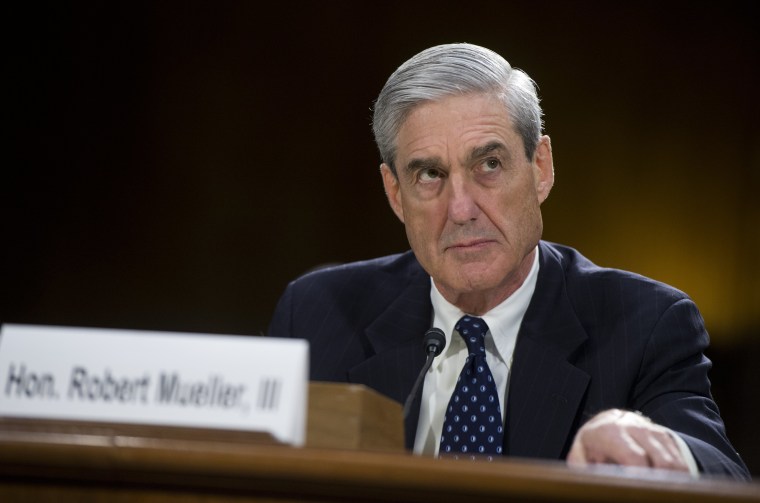Two years after Russia launched an intelligence operation to help put Donald Trump in office, we're still learning more about what Vladimir Putin's government did -- and when.
For example, a detailed analysis prepared for the Senate Intelligence Committee explained in detail how pro-Trump Russian agents "harnessed the major players of America's tech industry in a sophisticated propaganda effort that was far more extensive than originally understood." The initiative's focus was on, among other things, suppressing the African-American vote.
But what's less understood is the degree to which the Russian campaign continued well after it successfully aided the Kremlin's preferred American candidate. In fact, as the Washington Post reported overnight, the Russian effort specifically targeted Special Counsel Robert Mueller -- the man the Republican White House sees as a dangerous nemesis.
Months after President Trump took office, Russia's disinformation teams trained their sights on a new target: special counsel Robert S. Mueller III. Having worked to help get Trump into the White House, they now worked to neutralize the biggest threat to his staying there.The Russian operatives unloaded on Mueller through fake accounts on Facebook, Twitter and beyond, falsely claiming that the former FBI director was corrupt and that the allegations of Russian interference in the 2016 election were crackpot conspiracies.
The Post's report also cited research from a Clemson University team, which found that Russians tweeted about Mueller more than 5,000 times: "Some called for his firing, while others mocked him as incompetent and still others campaigned for the end of his 'entire fake investigation.'"
The president hasn't used that exact phrase, but it's very much in line with Trump's anti-Mueller messaging.
So, what's the bottom line? With the new information from the Senate Intelligence Committee, we know that the Russian intelligence operation was even broader than we initially realized, and it was geared specifically to help elect Trump to the White House, in part by targeting African-American voters and encouraging them not to participate in the elections.
At the same time, the Kremlin-backed operation didn't pack up after Election Day came and went. As Rachel noted on the show last night, Russian efforts "accelerated into the Trump era even after the election. That's the part that sort of makes you see everything differently."
